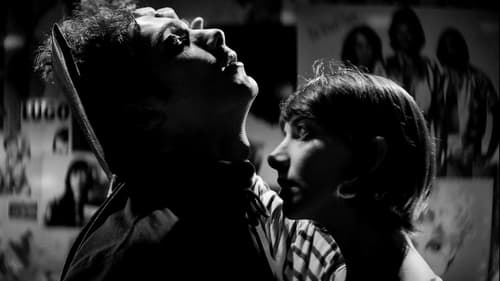
죽음과 고독의 냄새가 풍겨나는 곳 ‘Bad City’. 한 뱀파이어 소녀가 밤마다 스케이트 보드를 타고 고요한 길거리를 누비지만 도시의 사람들은 알지 못한다. 어느 날, 소녀는 우연히 만난 소년에게서 슬픔을 느끼는데… 외로운 뱀파이어 소녀와 고독한 인간 소년의 핏빛로맨스가 시작된다.

북부 캘리포니아의 한 바닷가.
캐시는(제니퍼 코넬리) 아버지가 30여년동안 돈을 모아 마련한 집에서 이혼의 충격을 딛고 새로운 인생을 모색하며 힘겹게 살아간다. 그러던 어느 날. 일주일 뒤에 집을 찾아오겠다는 엄마의 전화에 아침 잠을 설치던 캐시의 집에 법원직원과 경찰이 들이닥친다. 세금 체납으로 집이 경매로 넘어갔다며 퇴거 명령을 내린다. 캐시는 집이 경매로 넘어가는 것을 막으려 변호사를 찾지만 이란 출신의 이민자 베라니 (벤 킹슬리)가 자신의 전 재산을 털어 그 집을 헐값에 사들인다. 베라니는 전망 좋은 이 집을 수리해 비싼값에 되팔아 재기를 노린다. 그러나 아무도 자신을 도울 수 없는 처지에 놓인 캐시는 레스터(론 엘다드)라는 경찰의 도움으로 집을 다시 찾으려 하지만 집을 둘러싼 싸움은 점차 심해지고, 베라니의 부인 (소레 아그다슬루)과 아들 에스마일(조나단 아두트)까지 혼란에 빠지며 걷잡을 수 없는 파국으로 빠져드는데…
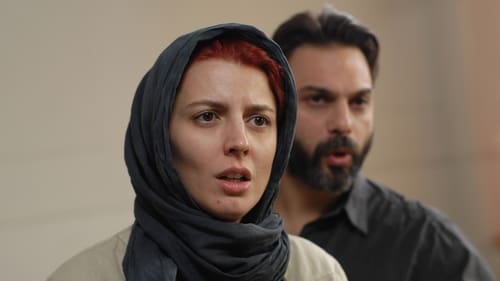
씨민과 나데르 부부는 별거 중이다. 아내 씨민은 딸의 교육을 위해 이민을 떠나고 싶어 한다. 그러나 치매인 아버지를 두고 떠날 수 없었던 나데르는 친정으로 떠난 아내를 대신하여 아버지를 돌봐줄 가정부를 고용한다. 임신 중임에도 가난에 떠밀려 남편까지 속이고 가정부 일을 시작했던 소마예는 어느 날, 나데르의 아버지를 침대에 묶어두고 잠시 외출을 한다. 그 사이 아버지가 위독했음을 알게 된 나데르는 격분하여 소마예를 해고하고 그 과정에서 소마예는 유산을 하고 만다. 이윽고 소마예 부부는 나데르를 살인죄로 고소하고 법정에서 만난 두 가족의 변명과 거짓말이 이어진다.

이란의 이슬람혁명 당시 반혁명 죄로 30년간 투옥되었던 쿠르드족 시인 사데그 카망가르의 실화를 바탕으로 만든 영화이다. 쿠르드족으로 인기 시인인 사헬과 아내 미나는 이슬람혁명기에 체포되어 투옥된다. 5년 후 풀려난 뒤 미나는 남편이 죽은 것으로 알고, 교도소에서 낳은 아이들을 키우며 살다가 터키로 이주한다. 30년 뒤 풀려난 사헬은 터키로 그들을 만나러 가지만, 또 다른 비극을 맞는다. 그리고, 이 모든 비극의 원흉인 악바르를 죽이고, 자신의 죄값도 치르려 한다. 사헬 역의 베흐루즈 보수기와 미나 역의 모니카 벨루치의 열연은 이 작품의 비장미를 극대화한다. (제 17회 부산국제영화제)

A 15-year-old Somalian boy meets a 40-year-old Iranian man in a refugee camp in Skåne, in the south of Sweden. With the threat of deportation hanging over them, they decide to take their faiths in their own hands and together they go on a journey in the Swedish summer.

Spanning 18 years in an Iranian women's prison, this follows two women: the new prison warden, a tough as nails devout Muslim who has served in the army on the Iraqi front, and a young midwife, Mitra, who is serving her sentence for killing her mother's abusive husband. In the early years, Mitra is repeatedly punished as the warden tries to break her. This includes punishment for delivering a baby in the prison cell while all of the prison staff has taken shelter during an Iraqi bombing. The warden's attitude starts to change after 8 years, when Mitra tries to protect a new inmate from rape at the hands of her older cellmates. When the baby comes back in 1991 as a 17 year old delinquent, Sepideh, the warden respects Mitra enough to protect the girl.

This twisted Iranian narrative follows a mysterious couple from Tehran as they distribute large bags of money in an impoverished mountain border town. Beginning as a black comedy, the film's mood transforms as the games played by Kaveh (director Mani Haghighi) and Leyla (Taraneh Alidoosti) become increasingly perverse, as they find inventive ways of humiliating the recipients of the cash. The immorality of the central characters is at times sickening, and their chain of lies is often as puzzling to us as they are to the townsfolk depicted onscreen. What is the relationship between the pair and why are they giving away money to the needy? Modest Reception has no easy answers nor pat resolutions - instead Haghighi takes the viewer on an intriguing ride into the dark recesses of the human spirit.

A Tehran mullah-in-training struggles to take care of his ailing wife and their children in this profoundly moving melodrama. A film of near-universal appeal, it puts a human face on Iran's Muslim clergy with its unusual tale of a man forced by hardship to become a better husband and father. Seyed Reza has just moved with his family to Tehran so he can study the Koran, and he relies on his lovely wife Zahra to look after their two young children and weave the intricate rugs that earn them a living. But one evening Zahra collapses and is taken to the hospital, where she's diagnosed with multiple sclerosis. Scarcely able to process the tragedy, Seyed is left to cook, change diapers, walk his daughter to school and take his toddler son with him to his classes, where peers and elders treat him with scorn. But Seyed eventually learns to cope, his prayers and devotional studies taking on deeper meaning as he attends to the hard nightly work of rug weaving, getting through with a heavy ...

Fereshteh loses her home and her two sons after her husband's accidental death when Hadj Safdar, her stubborn and powerful father-in-law, forces her to return to her parents. She is faced with the loss of her visitation rights when Hadj plans to send his grandchildren to live in a remote town. With the help of her circle of women friends she tries to take them beyond his reach, but in a patriarchal society it is hard to find a safe haven.

A sensation when released in 1999 in Iran, Two Women charts the lives of two promising architecture students over the course of the first turbulent years of the Islamic Republic. Tahimine Milani creates this scathing portrait of those traditions - aided by official indifference - which conspire to trap women and stop them from realizing their full potential; the inclusion of frank depictions of domestic violence was hailed by many as a breakthrough in dealing with a long taboo subject.

Tunnel 18 (Persian: تونل 18) is a 1997 Iranian Historical drama film written and directed by Hossein Shahabi (Persian: حسین شهابی)

Maryam (Negar Javaherian) and Reza (Shahab Hosseini) are different from other people, it's not just a simple difference, but a very big difference. They must try to prove to others they have solved the big difference with the miracle of love ...

Elevator (Persian: آسانسور) is a 1995 social drama Iranian film, written and directed by Hossein Shahabi (Persian: حسین شهابی)

In the tenth year of marriage, Babak and Manizheh face the biggest challenge of their life. Financial problems and difficult social situation cause Babak to work very hard and this leads to a deep gap between him and his wife, in a way that Manizheh starts a new relation, the relation which leads her to addiction and immorality. On the verge of her complete collapse, she wakes up to the truth that she has lost her life.

Princess of Rome, Mellika, granddaughter of Great Caesar. The story talks about her move from Byzantium in the 9th century, to avoid her marriage with Krytos, and brings her to Baghdad to become the mother of Imam Mahdi, the Savior.
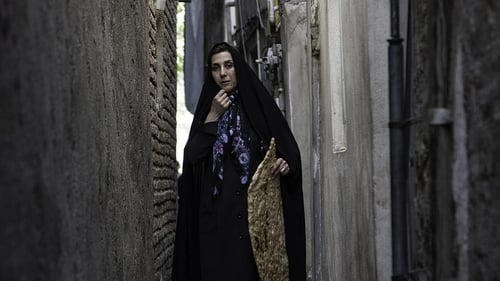
Award-winning Iranian filmmaker Rakshan Banietemad ends her eight-year hiatus from feature filmmaking with this ingenious, mosaic-like narrative, which knits together the stories of seven characters to create a microcosm of Iranian working-class society.
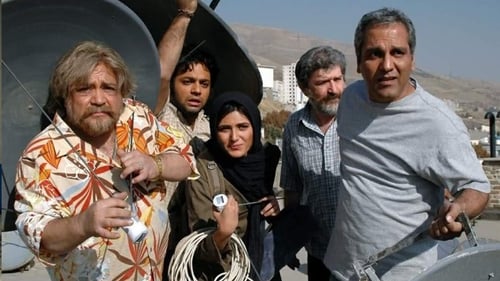
Mohammad is sent to an apartment situated in uptown Tehran to install their satellite dishes, while having satellite TV is illegal in Iran. He arrives there with a girl named Shirin who seems to be his girlfriend and is in need of some money to repair her father's car with which she has had an accident the day before. Each of the house's residents have their own fish to fry and they also want their satellites installed as soon as possible.

The movie is the story of a gang of men who decide to participate in Iran-Iraq war, also known as First Gulf War, which lasted from September 1980 to August 1988. the main character, Suzuki, who is there to satisfy his beloved's father that he is worthy of marrying his daughter, goes through some moving experiences in the war and his character changes to a level that he even tries to sacrifice himself to save the others in the war. the Movie ends by his martyrdom.
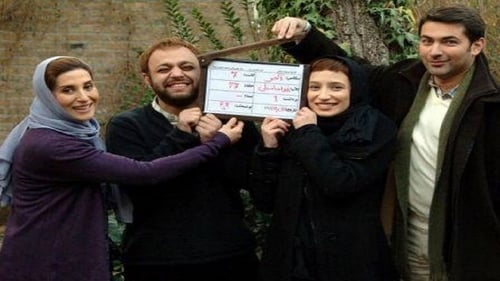
The story is about the world of a small family with familiar dreams and not so remarkable problems. The mother is trying to lead everything to save her family, but small events disarrange all her plans.

















